#IndustryNews
Tesla's German Factory Could Be Delayed So Animals Can Hook Up
Tesla’s planned factory in Germany could face major delays if the manufacturer doesn’t start construction within the next two months. Brandenburg’s Economy Minister, Joerg Steinbach, recently told German outlet Handelsblatt that the 300-hectare area in Grünheide Tesla set aside is subject to environmental regulations that prohibit interfering with the local wildlife’s breeding habits.
These twitterpated critters are not to be interfered with if the company hasn’t started building by mid-March.
Until then, it’s fair game. Once crews finish clearing the land (and leftover ordnance from World War II), they can finish scaring away the animals. However, if Tesla can’t get all of that done in a couple of months and start construction on the factory, it will be forced to delay the entire project another nine months.
Frankfurt Auto Show No Longer in Frankfurt
Verband der Automobilindustrie (VDA), the organizing body of Germany’s International Automobile Exhibition (IAA), has announced it will no longer hold its bi-annual trade show in Frankfurt. Last week, representatives from Berlin, Cologne, Frankfurt, Hamburg, Hanover, Munich and Stuttgart met with VDA to present their concepts for IAA 2021.
Frankfurt has already been taken out of the running, with the group saying the event would no longer take place at the Frankfurt am Main trade fair location after “evaluating all relevant criteria.” Despite being home to the show for decades, attendance has waned, encouraging VDA to examine its options.
Other trade events have undertaken similar changes in an effort to promote turnout amid growing public disinterest. Detroit managed to keep the North American International Auto Show (NAIAS) from leaving town, shifting its timing from January to June. Officially, this was done to allow more opportunities for manufacturers to set up outdoor displays and on-road vehicle demonstrations.
But simply having it take place at a time when Michigan air isn’t bitingly cold is bound to encourage more people to turn up.
Jaguar Land Rover CEO Stepping Down in September
Ralf Speth, the longtime CEO of Jaguar Land Rover (JLR), is stepping down. Parent company Tata Motors confirmed the move, saying Speth would continue serving as a non-executive vice chairman on the board holding company and advisor to JLR.
At 64, Speth is easing into retirement after having led the company for the last ten years. He’s scheduled to leave his post in September, having spent the brunt of his tenure expanding the company’s global footprint.
Natarajan Chandrasekaran, chairman of the Tata Sons holding company, said a search committee has been formed will work closely with him to identify a suitable successor in the coming months. But news of Speth’s prospective replacement followed closely after the retirement announcement.
Ford Mulls Mobility Test Site Behind Michigan Central Station
As part of its planned $740 million campus development project in Detroit’s Corktown, Ford is planning a vehicle testing site behind the once-abandoned Michigan Central Station. The land was already earmarked to serve as home base for the company’s latest mobility projects, so the space will be used for exactly that. However, due to location’s size, it’ll probably be relegated to projects outside the normal automotive scope.
Mary Culler, director of Michigan Central Station’s redevelopment, teased what the site might look like further down the line at the Detroit Policy Conference on Wednesday. The prospective testing ground was clearly shown in a slide during her presentation, located at the site of the station’s old loading area. However, the site isn’t expected to be operational until 2023, as the book depository and station renovations take precedence.
As Harley-Davidson Sales Struggle Continues, Company Says New Product Is the Best Response
We’ve kept light tabs on Harley-Davidson over the past few years, typically to chronicle its downward progress in an effort to make parallels between it and the world’s automakers. Despite having its share of ups and downs throughout its long history, the motorcycle brand finds itself with an impressively loyal customer base willing to pay premium prices for its product.
Unfortunately, its key demographic is quickly aging out of the hobby. In response, the company turned its focus towards younger generations. While Boomers living in America remain H-D’s most important clientele, it’s seeking to branch out into other markets and age brackets. It’s also attempting to rebrand itself to achieve broader appeal without torpedoing the heritage angle that has worked so well for it in the past.
When we last checked in with Harley-Davidson, the company had just delayed its all-electric LiveWire — a bike aimed at helping the brand tap into a new market while broadcasting its ability to gaze ahead into the same vague future automakers are now struggling with. H-D has since released its Q4 earnings for 2019.
The prognosis could be better.
'Do or Die': Nissan Buying Out U.S. Employees As Cost-cutting Spree Continues
In an effort to reduce expenses and lower its headcount, an embattled Nissan is offering buyouts to its U.S. employees.
It’s rumored that Nissan plans to eliminate thousands of white-collar jobs and shutter several global factories as part of its effort to improve the company balance sheet. Going into 2020 weak and not expecting to make any money, the automaker is turning its focus to restructuring for at least the next 24 months.
“To adapt to current business needs and improve efficiencies, Nissan will offer voluntary separation packages to eligible U.S.-based employees,” the company said in a statement.
French Fix: Renault Board Selects Next CEO
Renault has appointed the former boss of Volkswagen Group’s Seat brand, Luca de Meo, as its new chief executive. Eager to remove former CEO Thierry Bollore and further distance itself from any ties to Carlos Ghosn, the company has been without an official leader since October.
The automaker made an announcement Tuesday, saying that after a selection process led by the Governance and Compensation Committee, the Board of Directors under the chairmanship of Jean-Dominique Senard had settled on de Meo.
Clotilde Delbos, currently serving as interim CEO, will continue to assume her functions until Luca takes office at the beginning of July. Viewed as the most-likely successor since 2019, de Meo was simply waiting out the non-compete clause in his contract with VW. His official hiring still needs approval from Renault shareholders, with the next meeting taking place in April.
Just a Matter of Time Now: Porsche Swaps to Quarterly Sales Reporting
Porsche Cars North America is the latest automaker to join the expanding list of manufacturers abandoning monthly sales reports in favor of a quarterly format. Detroit has made the changeover entirely, with General Motors swapping to quarterly reports in 2018, only to be followed by Ford and Fiat Chrysler the following year. While Asian manufacturers tend to prefer monthly updates, both Hyundai and Nissan are considering trying quarterly reports within the next twelve months.
As for the German manufacturer, Automotive News cited Porsche as wanting to keep a better eye on the bigger picture. But the plan also runs some risks, especially when some automakers are on the monthly schedule and others report just four times per year.
FCA: Merger With PSA to Be Finalized Early Next Year
The FCA-PSA merger is progressing nicely. According to Fiat Chrysler CEO Michael Manley, the joint timeline established last month is totally feasible. Both companies hoped to get this settled before 2022; Manley now believes everything could be settled within the next 12 to 14 months.
The manufacturers have inked a binding agreement — worth an estimated $50 billion — to collaboratively prepare themselves to fend against slowing global demand and the unpleasantly high cost of developing greener vehicles to appease regional emission laws. They’re also attempting to establish an effective comprehensive strategy for the numerous auto brands involved in the deal. While we speculated about Chrysler’s future yesterday, over a dozen other marques that cater to fairly specific customer groups also need to be considered.
What's to Become of Chrysler?
Chrysler has certainly changed since emerging from the ashes of the Maxwell Motor Company in 1925, spending the better part of the 20th century purveying all manner of car to the American public. The current century has seen the company merge with Daimler, followed by Fiat. Now it’s cozying up to PSA Group, leaving many to wonder what purpose Chrysler serves beyond being the corporate namesake.
Officially, the merger isn’t supposed to impact any FCA or PSA brands. But the Chrysler brand isn’t exactly a model of industrial health. Its current lineup consists of four vehicles, one of which (Voyager) is just the lower-trim version of the non-hybrid Pacifica. The minivan sales are enviable, comprising over half of all vehicles sold within the segment for the United States last year — if you incorporate the Dodge Caravan — but Chrysler’s overall trajectory leaves much to be desired.
Senate Approves USMCA Trade Deal Replacing NAFTA
The U.S. Senate approved changes to the North American Free Trade Agreement on Thursday, effectively replacing the 26-year-old deal with the new United States–Mexico–Canada Agreement. USMCA embraces stronger automotive content rules for the region, updates language for new technologies, and enacts sweeping labor protections aimed at uplifting the Mexican workforce. As a byproduct, it’s also likely to discourage automakers from isolating themselves south of the U.S. border in an effort to secure cheap labor.
Passing with a 89-10 vote in the Republican-controlled Senate, USMCA also allows President Donald Trump to keep his campaign promise of replacing NAFTA — a pact he often referred to as “the worst deal in history.”
Millennials Now Positioned to Save U.S. Auto Market?
With nearly a decade’s worth of articles suggesting millennials never liked cars and are an industry boat anchor in waiting, a new report claims they may actually be the group that saves it. Using the same data from the Department of Transportation/Federal Highway Administration that showed present-day teens holding off on getting their driver’s license, the report placed Bloomberg under the impression that millennials will pick up the slack once they start cranking out offspring.
Millennials never actually hated cars. They’ve simply been, on average, too poor harness the same purchasing power of their ancestors, forcing them to put off major life decisions like getting married, having kids, buying a home and/or purchasing a new automobile. While some assuredly prefer public transit for environmental or social reasons, plenty of this has nothing to do with personal preference. The good news is that this fact appears to be reflected in the number of licensed drivers among their ranks, now that they’re getting a little older.
Ford Still Can't Figure Out China, GM Similarly Vexed
Ford has struggled to improve market share in China for years now, as decades of economic growth made the region’s overwhelmingly large population too tempting for global manufacturers to pass up. But it hasn’t been an easy road for foreign automakers. Many entered the region saddled with a lack of brand awareness and were required to enter into joint ventures with Chinese firms to gain access (Ford has three). U.S. products have since faced additional scrutiny as American-Sino relations soured; at the same time, the whole of the market appears to be heading in the wrong direction.
While this hurt plenty of automakers that aren’t Ford, the Blue Oval has really taken it on the chin. The company reported a 26.1 percent sales decline for 2019, marking its third straight year of negative growth in China. At first blush, that may not appear relevant to what’s happening in the West. But Ford hasn’t seen its market share in the People’s Republic rise above 5 percent since 2008 (it’s about half that now), despite putting plenty of resources behind the project.
Nissan Working on Contingency Plan in Case Things Go South With Renault
Despite Nissan and Renault spending much of 2019 attempting to reassure the world that their 20-year relationship was soundly intact, fractures have been impossible to hide from the public. If you want an analogy, imagine a carton of milk being left to curdle near a radiator and someone attaching a post-it note that reads “fine for drinking.”
While legitimate efforts to fix the relationship have been made (parts sharing, more collaborative projects, management changes, etc.), a lot of it has been undercut by the Renault-Nissan-Mitsubishi Alliance attempting to cleanse itself of the old guard — many of whom had ties to former alliance chair Carlos Ghosn. At the same time, Nissan has sought autonomy from the French automaker, enacting corporate reforms to give it a bit more independence. It also has a cogency plan ready in the event it has to break from Renault entirely; reportedly, Nissan’s been updating that strategy ever since Ghosn escaped Japanese custody last month.
Kentucky Kicks Off Production of Toyota RAV4 Hybrid
Toyota Motor Manufacturing Kentucky (TMMK) has announced the start of production of the new RAV4, the best selling vehicle in America that isn’t a pickup. Officially, TMMK is handling the hybrid version while other sites — like Toyota Motor Manufacturing Canada (TMMC) — takes care of the non-hybridized crossover.
Considering the RAV4 Hybrid just had its best sales year on record, moving 92,525 units in 2019, Toyota’s probably feeling pretty good about its decision. Total U.S. deliveries of the RAV4 hit 448,068 last year, marking another sales record for the brand. The redesigned models (introduced late in 2018) are already everywhere, making one grateful that they don’t necessitate the same cordial acknowledgement expected from motorcyclists and Jeep Wrangler owners. Your arm would be exhausted before making it out of the driveway.




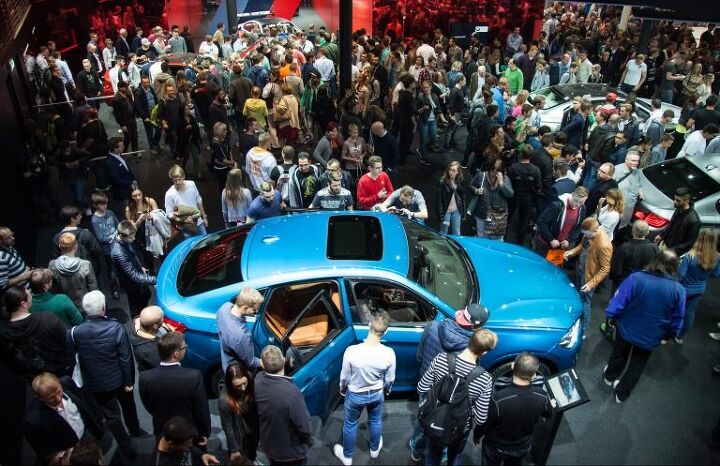
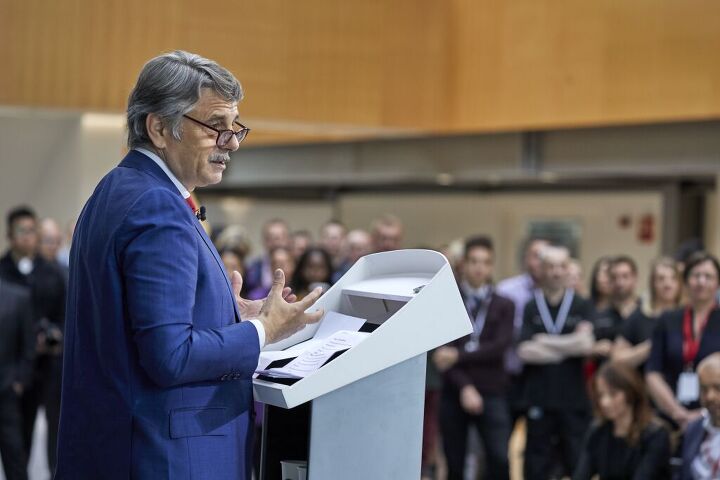


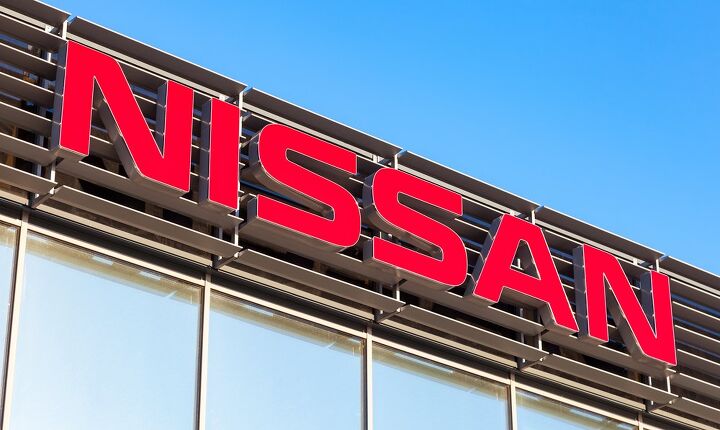
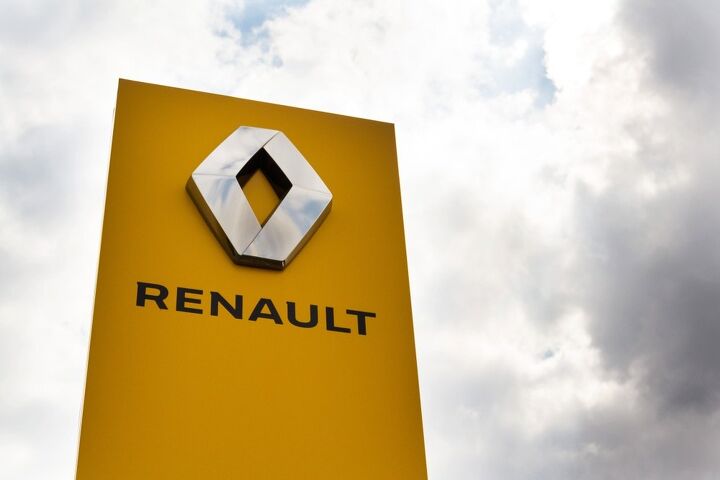


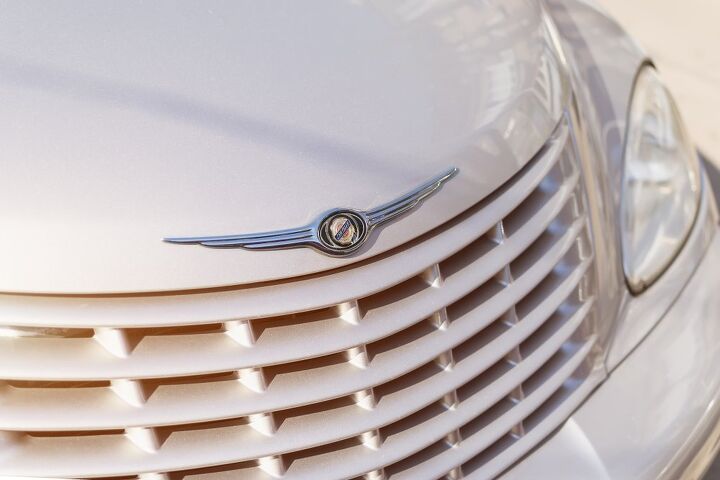
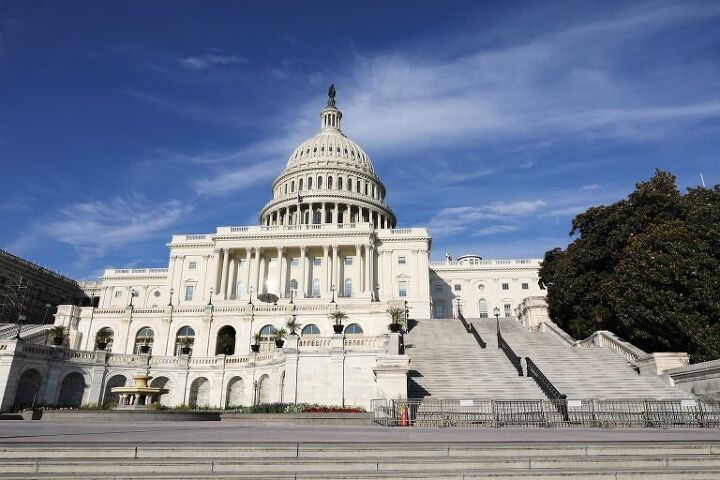

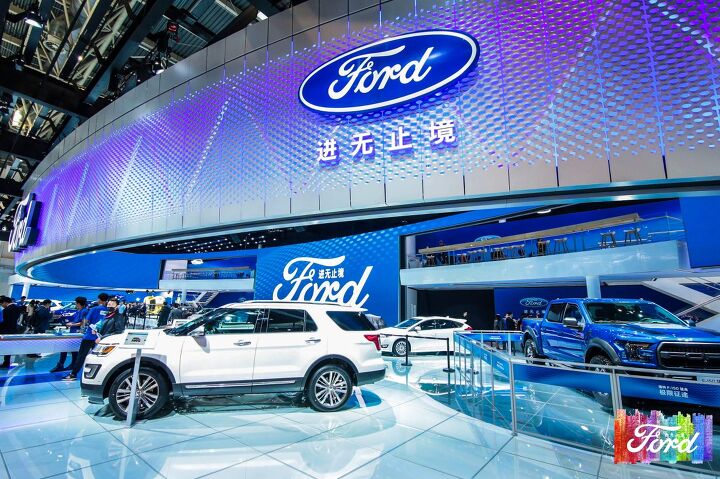
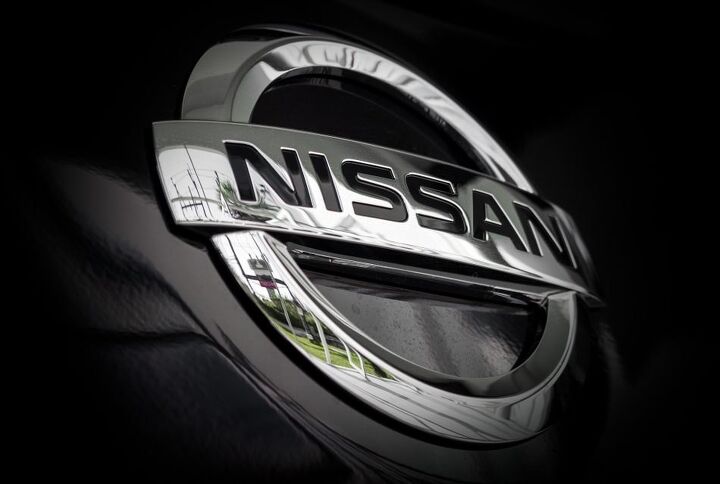
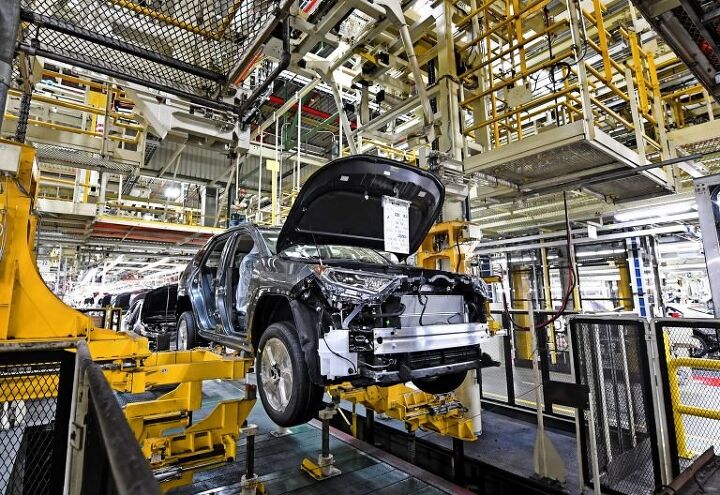












Recent Comments